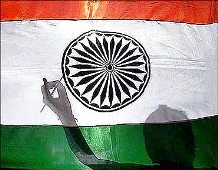 In the 90s, Mark Lynas was a most vocal critic of genetically modified technology.
In the 90s, Mark Lynas was a most vocal critic of genetically modified technology.
An author of books such as High Tide, Six Degrees: Our Future on a Hotter Planet and The God Species, he shocked the world when he later said he was wrong in opposing GM technology.
In a lecture at the Oxford Farming Conference earlier this month, he apologised for vandalising field trials of GM crops.
In an e-mailed interview with Business Standard, Lynas says his opposition to GM was divorced from science. Edited excerpts:
You were among the strongest critics of GM technology. What changed your perception?
My change of heart on GM came about when I realised there was no scientific basis to the opposition. I realised my insistence that everyone should respect the scientific consensus on climate change was inconsistent with my own rejection of the scientific consensus on GM.
For example, a recent statement from the American Association for the Advancement of Science states, “The science is quite clear: crop improvement by the modern molecular techniques of biotechnology is safe.”
It adds, “Contrary to popular misconceptions, GM crops are the most extensively tested crops ever added to our food supply.”
There has been criticism on your apparent change of heart, with people accusing you of being bought by multi-national seed corporations.
Allegations reflect the weakness of the arguments of anti-GM campaigners.
They cannot argue with my science.
So, they say I have been bought, though I am entirely independent.
My only affiliation is to Oxford University, as a visiting scholar.
I am very clear on this -- these allegations are baseless and false.
The attacks on me are intended to divert attention from the fact that what I say is supported by science and scientists, as well as farmers around the world.
How could GM technology be helpful in a country like India?
We
must be clear that GM technology is not a silver bullet and cannot deliver food security on its own.
It can help farmers by reducing the need for pesticides and delivering higher yields for fewer inputs.
It can also deliver drought tolerance and help make Indian farming more resilient in the face of climate change.
But it cannot solve the problems of poverty, corruption, caste oppression, etc. India has a lot of work to do if it wants to become a true superpower and eliminate poverty.
Currently, the highest number of malnourished people in the world live not in Africa, but in South Asia.
That India is not moving faster to eliminate hunger is shameful and an indictment of its entire system of governance.
What should be the approach of the Indian government in dealing with GM technology?The Indian government strangles the entire sector in an avalanche of unnecessary and conflicting regulations.
Remember, AAAS scientists say the inherent danger from GM crops is no more than from crops designed through ‘conventional’ breeding, which are not subject to any safety tests and have higher chances of causing something toxic or allergenic.
So, much of the regulatory system is designed to appease activists, but ends up throttling innovation.
The result is it costs so many millions to get through the regulations that only the biggest multinational corporations can attempt to do so, even in Europe.
In India, the approvals system is entirely frozen -- India cannot claim to be a modernising country, unless it is prepared to accept change and be less scared of innovation and novelty. ‘Tradition’ is not always best in seeds and farming, just as in social hierarchies.
In India, a Parliament standing committee and a special panel appointed by the Supreme Court had called for a ban on GM field trials.
The whole episode with the technical expert committee is an international embarrassment for India.
TEC would not pass muster in any international scientific forum. India must do better if it is to have a sensible policy on biotechnology.

 In the 90s, Mark Lynas was a most vocal critic of genetically modified technology.
In the 90s, Mark Lynas was a most vocal critic of genetically modified technology.